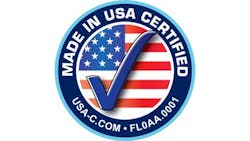Under President Ronald Reagan the United States, for the first time, saw on a large scale how a massive supply of imports could literally decimate and threaten the existence of an entire industry.
I am referring to the auto market when the U.S. was flooded with Japanese cars.
Early on in Reagan's campaign he spoke about the U.S. auto industry saying: "Japan is part of the problem. This is where government can be legitimately involved. That is, to convince the Japanese in one way or another that, in their own interests, that deluge of cars must be slowed while our industry gets back on its feet..."
Top U.S auto executives urged President Ronald Reagan to establish import quotas on Japanese cars. These American automakers were concerned that Japanese automobiles were permanently drawing consumers away from U.S. made vehicles. At that time, the Reagan administration was successful in convincing the Japanese government to temporarily halt auto exports to the U.S. in 1981. It was a very controversial move on the part of the Reagan administration.
As President, Ronald Reagan did a lot to try to "level the playing field." An often cited example of the benefits of voluntary export restraints is the one that emerged on Ronald Reagan's watch between the Japanese and the United States in the 1980's.
Another example is when Reagan imposed a 100% tariff on selected Japanese electronic products for allegedly "dumping" computer memory chips; he said he did it "to enforce the principles of free and fair trade." And Treasury Secretary James A. Baker stated that: Reagan "has granted more import relief to U.S. industry than any of his predecessors in more than half a century."
For these and other reasons on Dec. 23, 1985 President Reaganissued the following proclaimation:
America's current trade problems have caused some to wonder whether this country may not be in danger of losing its reputation as a supplier of high quality products at competitive prices. As America's strong economic growth has led to increased demand for goods and services, imports have become more attractive because of the relative strength of the dollar. U.S. exports have become less attractive to foreign buyers for the same reason. Recently, however, increased growth in the economies of our trading partners and movement of the dollar toward a more sustainable equilibrium give us reason to expect that our trade deficit should ease in the near future. Tough foreign competition, in the last few years, has presented our manufacturers and our work force with a stiff challenge.
But America's producers are responding to that challenge, and it is time for consumers both here and abroad to take a fresh look at what America has to offer. Those who do will find the traditional variety, high quality, and dependability that ``Made in the U.S.A." has come to symbolize. They also will find this quality at more competitive prices.
Made in America Month also provides an opportunity for American firms and workers to resolve to take greater advantage of new competitive opportunities both here at home and in overseas markets. We Americans do not shrink from competition; we believe in competition -- fair competition. Historically, competition constantly creates pressure for innovation, product improvement, and customer satisfaction. The open marketplace makes the consumer the king, and we are all consumers.
In an increasingly competitive world, we Americans must redouble our efforts to make products of the highest quality in the most efficient way and market them aggressively. As we do I have no doubt that more and more Americans and foreigners will be drawn to the products with the proud label: ``Made in America."
The Congress of the United States, by Senate Joint Resolution 206, has authorized and requested the President to proclaim December 1985 as "Made in America Month" and authorized and requested the President to issue a proclamation in observance of this event.
Now, Therefore, I, Ronald Reagan, President of the United States of America, do hereby proclaim December 1985 as Made in America Month. I invite the people of the United States to observe this month with appropriate programs and activities to recognize and celebrate the excellence of American products.
Relevance in 2012
There are obvious similarities of a lot of the wordage to our current situation today in 2012. This proclamation could have been written almost exactly today, by our 44th President of the United States, President Barack Obama.
When countries like China, manipulate their currency, flood our markets with cheap underpriced goods using cheap labor and following no environmental regulations -- the playing field is not level, the United States can not compete "fairly."
How can we counter the situation with China? We can do today what Ronald Reagan implored us to do years ago. He wanted to encourage citizens, officials and manufacturers to partake in activities and programs "recognizing and celebrating American products."
A recent study by the National Retail Federation revealed that the average American will spend $700 in holiday purchases this year for a total of $465 billion. If that money was spent entirely on U.S.- made products it would create 4.6 million jobs.
But it doesn't even have to be that big. If each of us spent just $64 on American made goods during our holiday shopping, the result would be 200,000 new jobs."
Julie Reiser is the president & co-founder of Made in USA Certified. To see a blog entry that Julie wrote on the subject of December being officially proclaimed "Made in America Month" click here.
